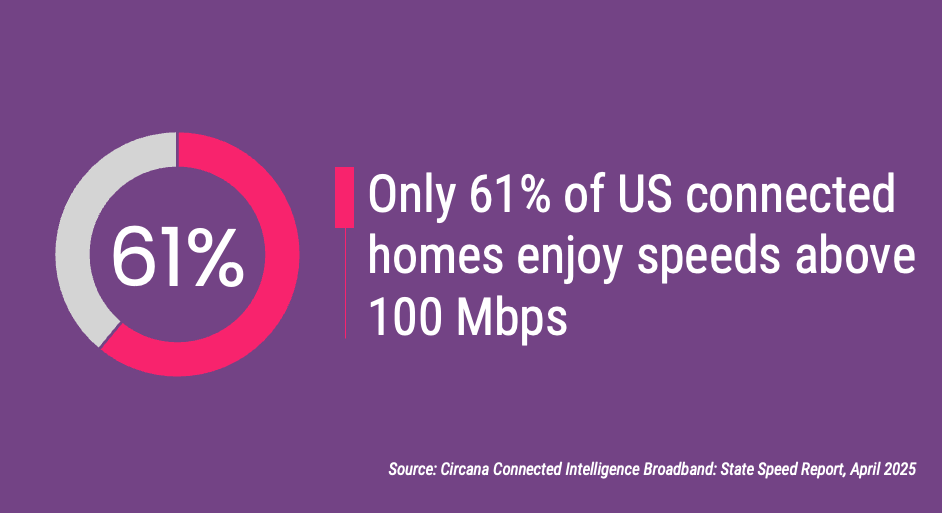
Chart and Cox announce $34 billion merger
Charter Communications and Cox Communications said on Friday that they had agreed to merge, creating one of the largest TV and internet providers in the US. The two companies say that the deal will help them compete against big rivals, including “larger, national broadband companies” such as Verizon, as well as satellite service providers.
The $34.5 billion deal comes at a a time of renewed interest in broadband, with companies such as T-Mobile aggressively pushing into the market. Charter, which has 31.5 million customers, and Cox, which has 6.5 million subscribers (5.9 million buy internet service), will operate under the Cox name – if the deal goes through – but will retain Spectrum as the name of the company’s consumer-facing brand.
The Circana Take:
- As with all massive deals, the big question is whether this deal will be approved. The two companies do not directly compete against each other, so this is not the case of removing a competitor from the market which should help the case for merging. Having said that, the deal is certain to face an uphill battle to gain approval.
- T-Mobile had been rumored to be considering an acquisition of Charter as it looks to further expand its broadband footprint. That opportunity is now clearly off the table, and could drive another round of smaller acquisitions as T-Mobile – and other mobile providers – look to solidify their broadband positions.
- The deal will significantly strengthen Charter’s mobile position. The company is enjoying strong growth in mobile (it had the largest number of net adds of any mobile carrier in Q1) and expanding its footprint to an additional 6.5 million subscribers (and an associated WiFi footprint) will aid in further growth.
FCC approves Verizon’s $20 billion Frontier merger
The FCC has approved Verizon’s merger with Frontier after Verizon agreed to drop its DEI-related practices. The FCC’s statement said the approval “ensures that discriminatory DEI policies end” and that Verizon “has reaffirmed the merged entity’s commitment to equal opportunity and nondiscrimination.” T-Mobile made similar moves to get its acquisition of Lumos approved, so we can expect any reference to DEI to quickly disappear from Charter and Cox’s websites.
But more importantly, this is a big deal for Verizon, which needed to strengthen its broadband presence to better defend – and grow – its business against the other traditional mobile carriers, as well as the cable companies which are so-called Frenemies to Verizon – they compete against Verizon for mobile customers, but leverage the Verizon mobile network as an MVNO.
The Circana Take:
- Verizon plans to upgrade and expand Frontier’s network, with the goal of deploying fiber to over one million US homes annually. We expect most of that will be improvements to the existing copper-based footprint. This is key: according to Frontier’s Q1 results, copper-based revenues accounted for roughly one-third of the total revenue ($582 million), but the company continues to lose customers on its older network (41,000 in Q1).
- Verizon can immediately start to promote bundled solutions to customers to drive further revenue – and loyalty. Frontier did not have a mobile component to offer, so this could be a significant boost to Verizon.
- As there is more and more merger activity, bringing mobile and fixed line internet services back together again, the carriers need to develop a strong consumer-focused “convergence” story. They are all throwing the “C” word around… but beyond a bundled offering to save a few dollars (not to be sniffed at, admittedly) there’s little actual substance to any promise of consumer-focused convergence.